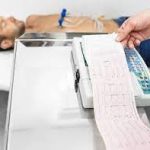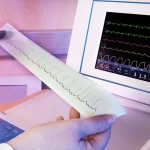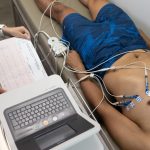ECG درړه برقی ګراف
An electrocardiogram records the electrical signals in your heart. It’s a common test used to detect heart problems and monitor the heart’s status in many situations.It is a noninvasive, painless test with quick results. During an ECG, sensors (electrodes) that can detect the electrical activity of your heart are attached to your chest and sometimes your limbs. These sensors are usually left on for just a few minutes.
Your doctor may use an electrocardiogram to detect:
- Irregularities in your heart rhythm (arrhythmias)
- If blocked or narrowed arteries in your heart (coronary artery disease) are causing chest pain or a heart attack
- Structural problems with your heart’s chambers
- A previous heart attack
- How well certain ongoing heart disease treatments, such as a pacemaker, are working
You may need an ECG if you experience any of the following signs and symptoms:
- Heart palpitations
- Rapid pulse
- Chest pain
- Shortness of breath
- Dizziness, lightheadedness or confusion
- Weakness, fatigue or a decline in ability to exercise
Your doctor may discuss your results with you the same day as your electrocardiogram or at your next appointment.



